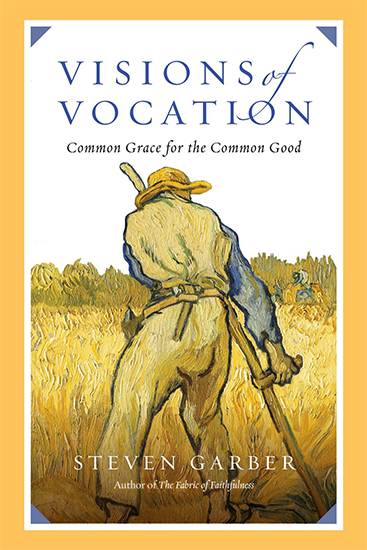For today’s Blood:Water Book Club, we will review chapters 4-5 of Visions of Vocation by Steve Garber.
Summary:
“Knowing what I know, having heard what I’ve heard, having read what I’ve read, what am I going to do?” (82) Implication is not just an acknowledgment of a situation in your mind, but recognizing your calling and responding with your heart. A mind without a heart is nothing. God does not call us to be morally neutral- He calls us to be morally direct! To truly know and understand, not just with our minds, is to care. Our response to the heartache and the disappointments of the world should be to love and strive for relationship; with relationship comes revelation and responsibility, and therein lies vocation.
The decision to step into implication is not easy, but we must seek to learn more about the world’s circumstances and always pay attention in order to see ourselves as responsible. We must immerse ourselves, meeting real people with real lives, to understand and commit to a common good. Change is not short-term, and transformation can only begin when we “come and see” with our eyes and respond with our hearts.
Themes:
A mind without a heart is nothing; Knowing is Doing; Relationship, Revelation, Responsibility; A Covenantal Epistemology; Come and See; Words have to become flesh.
Powerful lines:
- “Knowing what I know, having heard what I’ve heard, having read what I’ve read, what am I going to do?” (82)
- “Written into that vocation is an epistemological challenge, a way of knowing that is not and can never be morally neutral, but is always morally directive. We must not only know rightly, but do rightly. And we must know and understand and love – at the same time.” (90)
- “To be ‘obligated’ requires that one know the reality of one’s situation, of one’s moment in time, in relation to God, to others, to the world.” (95)
- “What does it mean to ‘know’? …If one knows then one cares; if one does not care, then one does not know.” (100)
- “That we see ourselves as responsible, for love’s sake, is what the responsibility of knowledge is always about.” (114)
- “ In the best of learning, in the truest learning, words have to become flesh, and more often than not it is in storied service that the eyes of the heart are awakened.” (119)
- “If we are to understand our place in the world, we have to find a way into that vision, somehow somewhere. Come and see.” (135)
Questions to Ponder:
- Where in your life do you have the knowledge of opportunity, but have yet to step into the complexity of responsibility?
- Think of a time that you “knew rightly,” but did not “do rightly?” What was the result of your inaction, and how could you have responded for love’s sake?
- Discuss the importance of implication and obligation. Can you have one without the other?
Challenge:
As you move through different phases and challenges in your life, make it a point to know and care, moving outside of just acknowledging circumstances in your mind, and respond with your heart for love’s sake.

